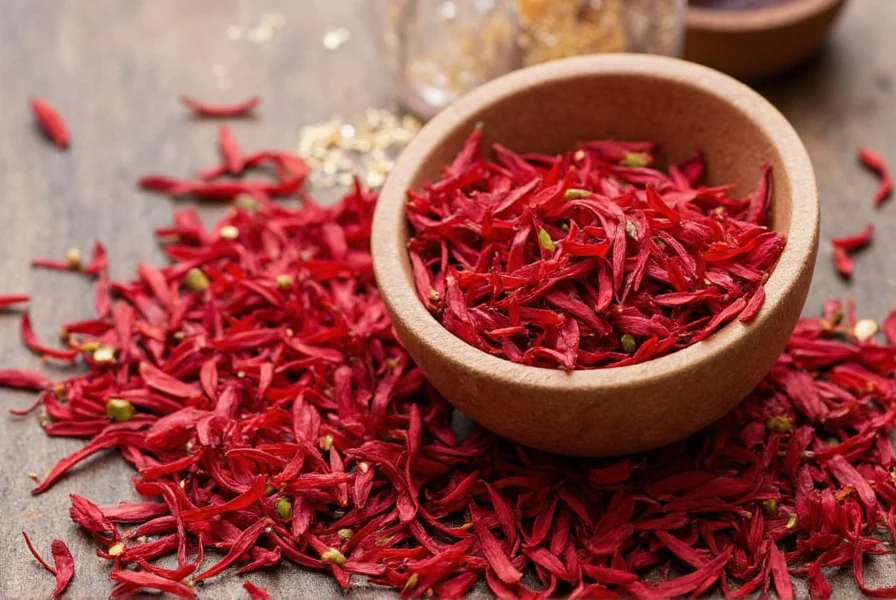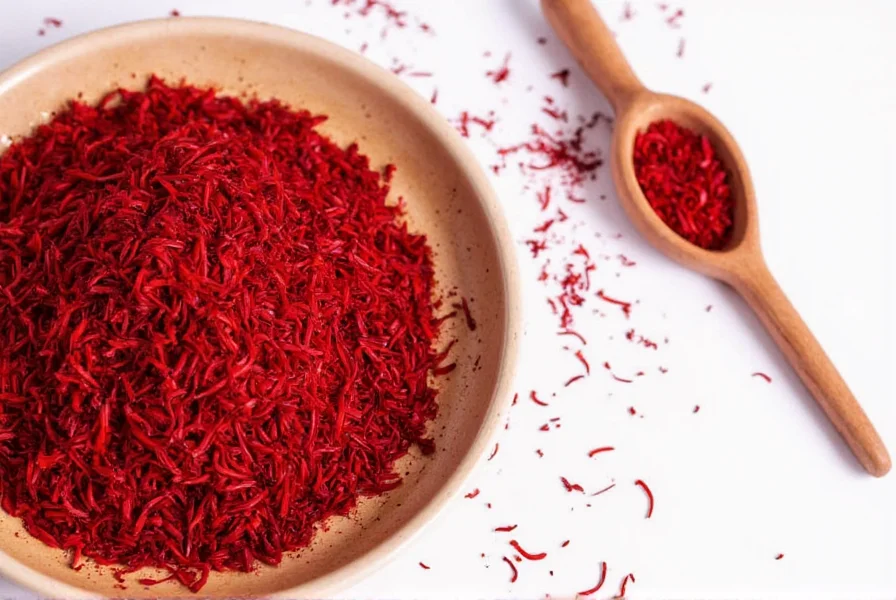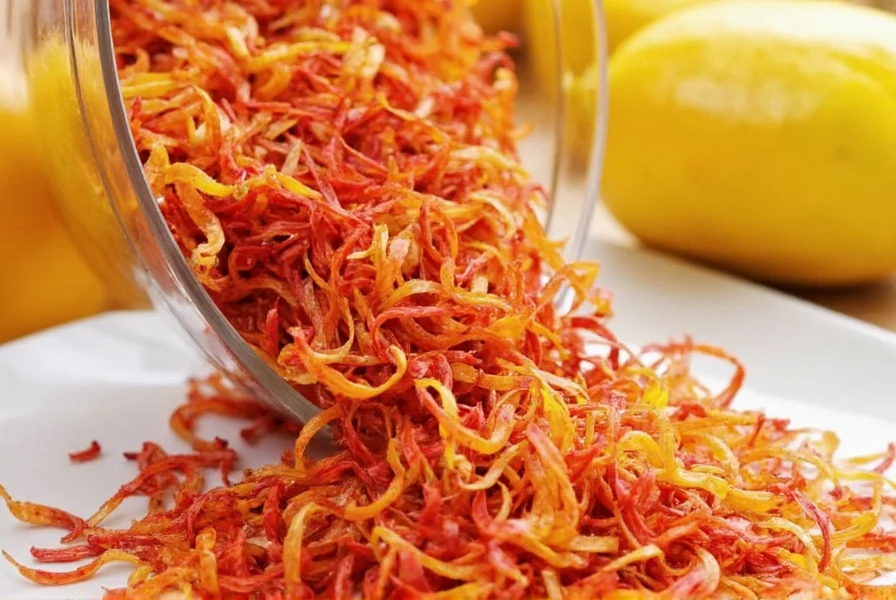Saffron extract has gained significant attention in evidence-based nutrition for its concentrated therapeutic properties. Unlike regular saffron threads used in cooking, standardized saffron extracts provide consistent levels of active compounds like crocin and safranal, making them valuable for specific health applications. This comprehensive review examines the clinically proven benefits supported by human trials and systematic reviews.
What Makes Saffron Extract Different from Culinary Saffron
Saffron extract undergoes specialized processing to concentrate bioactive compounds while removing inert plant material. While culinary saffron contains approximately 2-3% crocin (the primary antioxidant), standardized extracts typically contain 2-8% crocin and 0.3-1% safranal. This concentration allows for therapeutic dosing without requiring impractical amounts of the spice. Most clinical studies use extracts standardized to 2% safranal and 2-3% crocin, delivering measurable health effects at 15-30 mg daily doses.

Science-Backed Health Benefits of Saffron Extract
Mood Enhancement and Depression Management
Multiple randomized controlled trials demonstrate saffron extract's effectiveness for mild-to-moderate depression. A 2020 meta-analysis in Phytomedicine reviewed 8 clinical trials involving 791 participants, finding saffron extract (30 mg daily) produced comparable results to conventional antidepressants like fluoxetine and imipramine, with 50-64% symptom reduction. The mechanism appears related to safranal's modulation of serotonin, dopamine, and norepinephrine systems without the sexual side effects common with SSRIs.
Eye Health and Macular Protection
Research published in Investigative Ophthalmology & Visual Science shows saffron extract improves retinal function in early age-related macular degeneration (AMD). In a 14-month trial, participants taking 20 mg daily showed significant improvements in macular edema and photoreceptor function compared to placebo. Crocin's antioxidant properties protect retinal cells from blue light damage and oxidative stress, potentially slowing AMD progression. This makes saffron extract benefits for eyes particularly valuable for aging populations.
Weight Management and Appetite Control
A double-blind study in Nutrition Research found saffron extract reduced snacking frequency by 55% and decreased daily calorie intake by 18%. Participants taking 176.5 mg daily of a patented saffron satiety extract (affron®) reported 50% less between-meal snacking after 8 weeks. The effect appears related to safranal's influence on serotonin pathways that regulate hunger signals. For those researching saffron extract dosage for weight loss, studies typically use 88.25-176.5 mg daily of standardized extracts.
| Health Benefit | Effective Dose | Time to Notice Effects | Key Clinical Evidence |
|---|---|---|---|
| Mood support | 15-30 mg/day | 4-6 weeks | 8 RCTs with 791 participants |
| Eye health | 20 mg/day | 3 months | 14-month AMD study |
| Appetite control | 88-176 mg/day | 2 weeks | Double-blind weight management trial |
| PMS relief | 30 mg/day | 1-2 cycles | Randomized trial with 50 women |
PMS Symptom Relief
A randomized trial published in Complementary Therapies in Medicine found saffron extract significantly reduced premenstrual syndrome symptoms. Women taking 30 mg daily experienced 64% reduction in irritability and 59% decrease in sadness compared to placebo. The study suggests saffron's mood-regulating properties extend to hormonal fluctuations, making it a promising natural option for saffron extract for depression related to menstrual cycles.
Safety Profile and Potential Side Effects
Saffron extract demonstrates excellent safety at recommended doses. Clinical trials report minimal saffron extract side effects, with occasional mild digestive discomfort or headaches at doses above 30 mg daily. Crucially, unlike many antidepressants, saffron extract doesn't cause sexual dysfunction or significant weight gain. However, doses exceeding 1.5 grams daily may cause toxic effects, while pregnant women should avoid therapeutic doses due to potential uterine stimulation. Always consult a healthcare provider before combining with antidepressants or blood thinners.
Choosing Quality Saffron Extract Supplements
Not all saffron extracts deliver equal benefits. Look for products specifying:
- Standardized to 2-3% crocin and 0.3-1% safranal
- Third-party testing verification (USP, NSF, or ConsumerLab)
- Clear dosage information matching clinical studies
- Transparent sourcing (Iranian or Spanish saffron typically highest quality)
When evaluating how does saffron extract work in your body, remember that quality extracts undergo specialized extraction processes to preserve bioactive compounds that degrade during cooking.

Realistic Expectations: Saffron Extract vs. Other Supplements
While saffron extract shows promise, it's not a miracle cure. Compared to saffron extract vs. saffron threads, the extract provides consistent therapeutic dosing impossible to achieve through culinary use. When considering alternatives:
- For mood support: Saffron compares favorably to St. John's Wort with fewer drug interactions
- For eye health: Complements but doesn't replace lutein/zeaxanthin in AREDS2 formulas
- For weight management: Works through different mechanisms than green tea extract or glucomannan
Conclusion: Evidence-Based Use of Saffron Extract
Saffron extract represents one of the better-researched natural supplements with multiple human clinical trials supporting its benefits for mood, eye health, and appetite control. The most compelling evidence exists for depression management at 30 mg daily doses, with noticeable effects within 4-6 weeks. When selecting products, prioritize standardized extracts with verified crocin and safranal content from reputable manufacturers. While generally safe, consult your healthcare provider before use if you have medical conditions or take medications, especially antidepressants or blood thinners.











 浙公网安备
33010002000092号
浙公网安备
33010002000092号 浙B2-20120091-4
浙B2-20120091-4